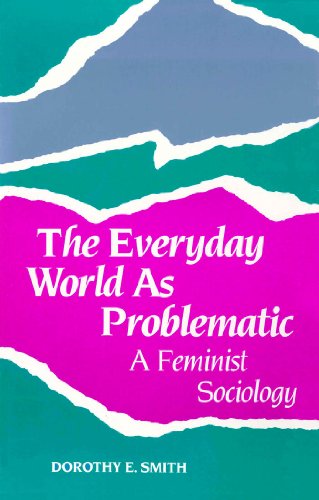Writing Ethnographic Fieldnotes, Second Edition (Chicago Guides to Writing, Editing, and Publishing)

The six essays in this volume chart the development of Dorothy Smith's approach to the study of social life. She examines the struture of the everyday world through the lenses of feminist theory, Marxism, and phenomenology.
Smith's analysis derives from the premise that women are excluded from what she calls the 'ruling apparatus' of culture. Culture, she argues, does not arise spontaneously, but rather is manufactured by those in positions of dominance - almost exclusively men - who originate the forms of though we use to consider ourselves and society. The perspectives, concerns, interests of only one sex and one class are represented as general. Only one sex and class are actively involved in producing, debating, developing its ideas, its art, its medical and psychological conceptions, its educational values and objectives.
From this perspective Smith proposes an alternative to traditional socological inquiry - a sociology beginning from women's actual lived experience - and explores methods of thinking which will realize the project of a sociology for women. She goes on to work through a conception of the experienced world as problematic to a research strategy and sketches out a possible research project which employs her method of institutional ethnography. Finally, she proposes a remaking of the relations of social (not exclusively sociological) knowledge, creating forms of knowledge which substitute relations among subjects by the objectified forms through which we know others as objects.
| Country | USA |
| Manufacturer | Northeastern University Press |
| Binding | Kindle Edition |
| ReleaseDate | 2012-01-15 |
| Format | Kindle eBook |